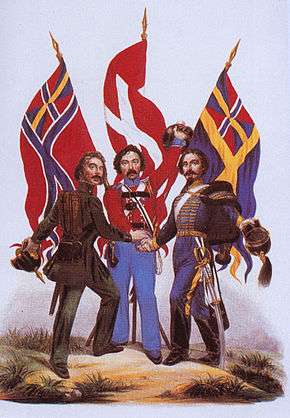Political movement

In the social sciences, a political movement is a social group that operates together to obtain a political goal,[1] on a local, regional, national, or international scope. Political movements develop, coordinate,[2] promulgate,[3] revise,[4] amend,[5] interpret,[6] and produce materials that are intended to address the goals of the base of the movement. A social movement in the area of politics can be organized around a single issue or set of issues, or around a set of shared concerns of a social group. In a political party, a political organization seeks to influence, or control, government policy, usually by nominating their candidates and seating candidates in political and government offices.[7] Additionally, parties participate in electoral campaigns and educational outreach or protest actions aiming to convince citizens or governments to take action on the issues and concerns which are the focus of the movement. Parties often espouse an ideology, expressed in a party program, bolstered by a written platform with specific goals, forming a coalition among disparate interests.
Examples
Some political movements have aimed to change government policy, such as the anti-war movement, the ecology movement, and the anti-globalization movement. Many have aimed to establish or broaden the rights of subordinate groups, such as abolitionism, the women's suffrage movement, the civil rights movement, feminism, men's rights movement, gay rights movement, the disability rights movement, or the inclusive human rights movement. Some have represented class interests, such as the Labour movement, socialism, and communism, others have expressed national aspirations, such as anticolonialist movements, Ratana, Zionism, and Sinn Féin. Political movements can also involve struggles to decentralize or centralize state control, as in anarchism, fascism, and Nazism.
With globalization, global citizens movements may have emerged.[8]
Movements may be named by outsiders, as with the levellers political movement in 17th century England was so named as a term of disparagement. Yet admirers of the movement and its aims later came to use the term, and it is the term by which they are known to history.[9]
See also
- General
- Political spectrum, political science, political history (gestalt, political thought history), political sociology (political opportunity, resource mobilization), political structure
- States
- Sovereignty (sovereign state), nation state, federated state, member state, nation, The Estates, Rechtsstaat
- People
- John Locke, Georg Hegel, Karl Marx, Max Weber, Thomas Hobbes, Michel Foucault
- Political philosophy
- Autonomy (social identity), collective action, democracy, economic freedom, egalitarianism, equality before the law, equal opportunity, free will, social framing, gender equality, intellectual freedom, liberty, justice (moral responsibility), political freedom (assembly, association, choice, speech), political representation (representative democracy), political legitimacy, racial equality, rights (civil liberties), social cohesion, social equality
- Political views
- Conservatism, environmentalism, fascism, feminism, liberalism, Marxism, nationalism, socialism, list of political ideologies
- Other
- Conservatism in the United States, Constitutional Movement, contentious politics, environmental movement, green politics, political aspects of Islam, political protest, sanctuary movement, Tea Party movement
Further reading
- Harrison, Kevin; Boyd, Tony (2003). Understanding Political Ideas and Movements: a Guide for A2 Politics Students. Manchester University Press.
- Opp, Karl-Dieter (2009). Theories of Political Protest and Social Movements: A Multidisciplinary Introduction, Critique, and Synthesis. Routledge.
- Snow, David; Della Porta, Donatella; Klandemans, Bert; McAdam, Doug. The Wiley-Blackwell Encyclopedia of Social and Political Movements. John Wiley.
References
- ↑ Political movement. dict.org
- ↑ See also: Coordination failure
- ↑ See: decrees, declarations, and announcements
- ↑ See: political revisionism and negationism
- ↑ See also: Constitutional amendment
- ↑ See also: Judicial interpretation
- ↑ Mc Donald, Neil (1963). The Study of Political Parties. New York.
- ↑ George, Susan (2001-10-18). "The Global Citizens Movement. A New Actor For a New Politics". TransNational Institute.
- ↑ Plant, David (2005-12-14). "The Levellers". British Civil Wars and Commonwealth website. Retrieved 2013-06-05.